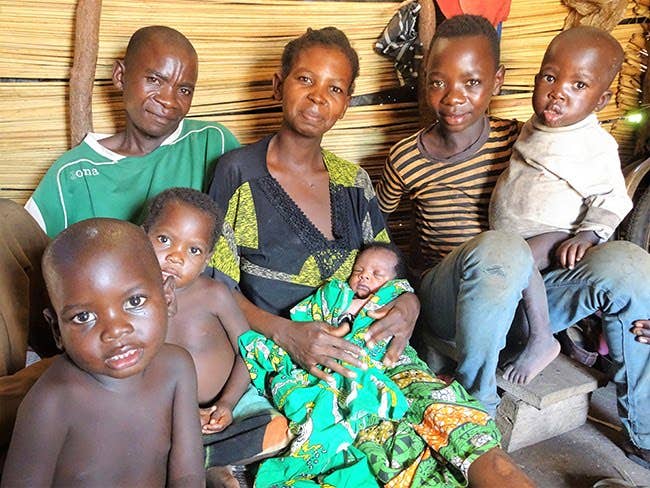EU provides crucial funding to support urban families in Zambia impacted by COVID-19
The European Union (EU) has contributed EUR 5 million to the United Nations World Food Programme (WFP) to provide cash assistance to

[Aug. 20, 2020: Joseph Shavit]
The European Union (EU) has contributed EUR 5 million to the United Nations World Food Programme (WFP) to provide cash assistance to 655,000 food insecure people in urban areas of Zambia. These vulnerable communities have been strongly affected by the economic impacts of COVID-19. Without this critical support, the Zambians would struggle to get by over the next few months.
WFP has been reaching poor families in parts of Lusaka and Kafue with relatively high infection rates. The EU funding will enable it to extend this assistance to two more cities, Livingstone and Kitwe, with a view to reaching 655,000 people overall. Each beneficiary family will receive ZMW 400 (EUR 18.5) a month for six months to help cover their food needs.
“COVID-19 has disrupted the ability of thousands of poor city families traditionally reliant on daily labour and informal trading to earn a living,’’ said Jennifer Bitonde, WFP’s Representative in Zambia. ‘’With food prices on the rise, the constant struggle to meet basic needs is now much tougher – and becoming more so.’’
‘’The EU and its Member States are among the world's leading donors of humanitarian aid, and in these difficult times, we are stepping up our efforts to continue providing help where it is most needed. With our contribution to these humanitarian efforts by WFP, the EU again demonstrates its solidarity with the most vulnerable people in Zambia who are bearing the brunt of this epidemic”, said Pascal Mounier, Head of the EU’s Humanitarian Aid Regional Office in Kinshasa.
WFP is prioritizing those who depend on the informal sector as well as the elderly, people living with disabilities and the chronically ill, who cannot meet their food needs due to rising prices and income losses.
‘’WFP is grateful to the European Union for coming to the aid of poor urban households during this challenging time,’’ said Ms Bitonde. ‘’This contribution is very timely, as many Zambians are emerging from a two-year drought that has severely undermined national food security.’’
Like these kind of stories? Get The Brighter Side of News' newsletter.
Want to learn more?
The United Nation's World Food Program is headquartered in Rome, Italy.
Assisting almost 100 million people in around 83 countries each year, the World Food Programme (WFP) is the leading humanitarian organization saving lives and changing lives, delivering food assistance in emergencies and working with communities to improve nutrition and build resilience.
As the international community has committed to end hunger, achieve food security and improved nutrition by 2030, one in nine people worldwide still do not have enough to eat. Food and food-related assistance lie at the heart of the struggle to break the cycle of hunger and poverty.
On any given day, WFP has 5,600 trucks, 30 ships and nearly 100 planes on the move, delivering food and other assistance to those in most need. Every year, we distribute more than 15 billion rations at an estimated average cost per ration of US$ 0.61. These numbers lie at the roots of WFP’s unparalleled reputation as an emergency responder, one that gets the job done quickly at scale in the most difficult environments.
WFP’s efforts focus on emergency assistance, relief and rehabilitation, development aid and special operations. Two-thirds of our work is in conflict-affected countries where people are three times more likely to be undernourished than those living in countries without conflict.
If you'd like to donate to the WFP you can do so here.



